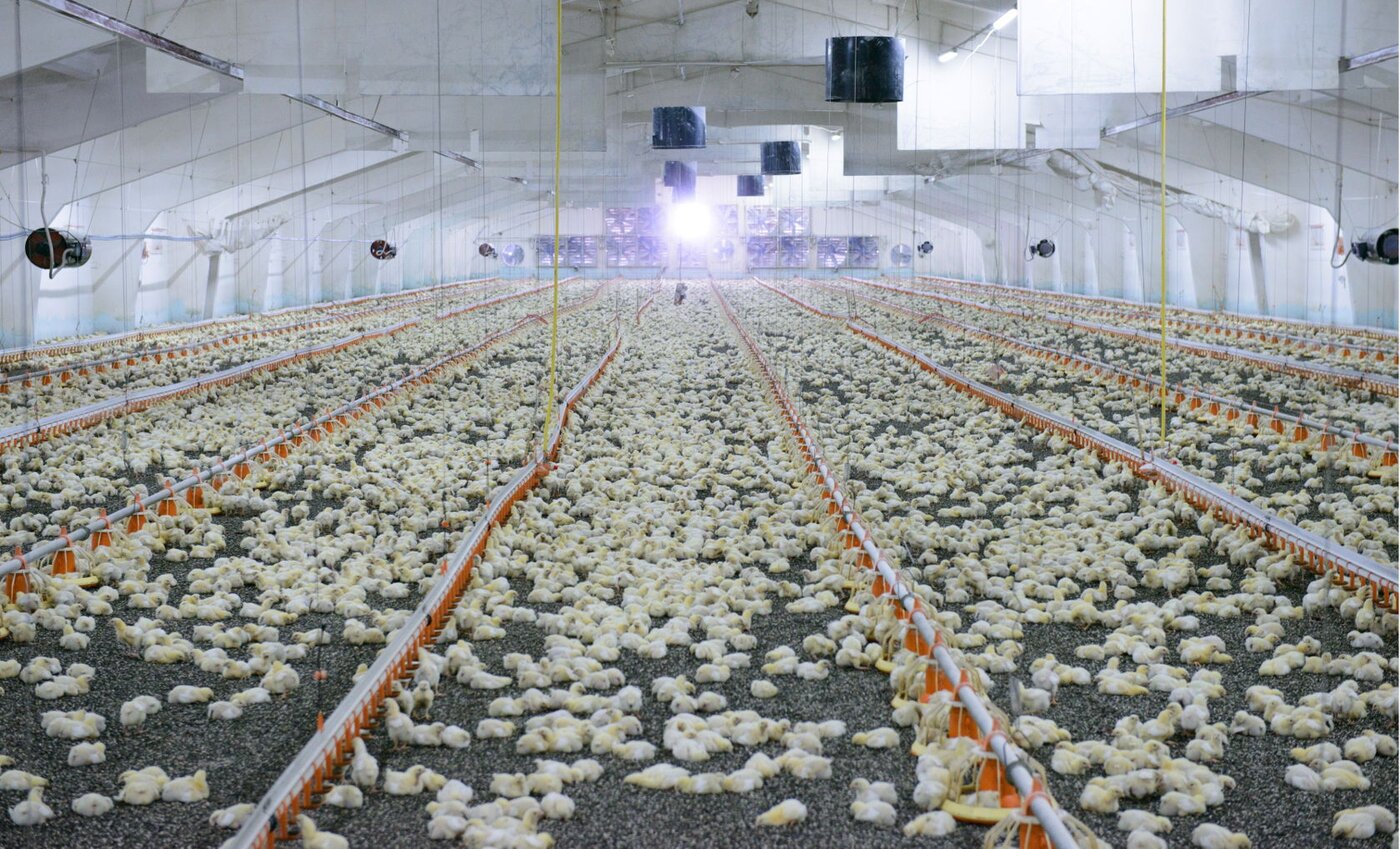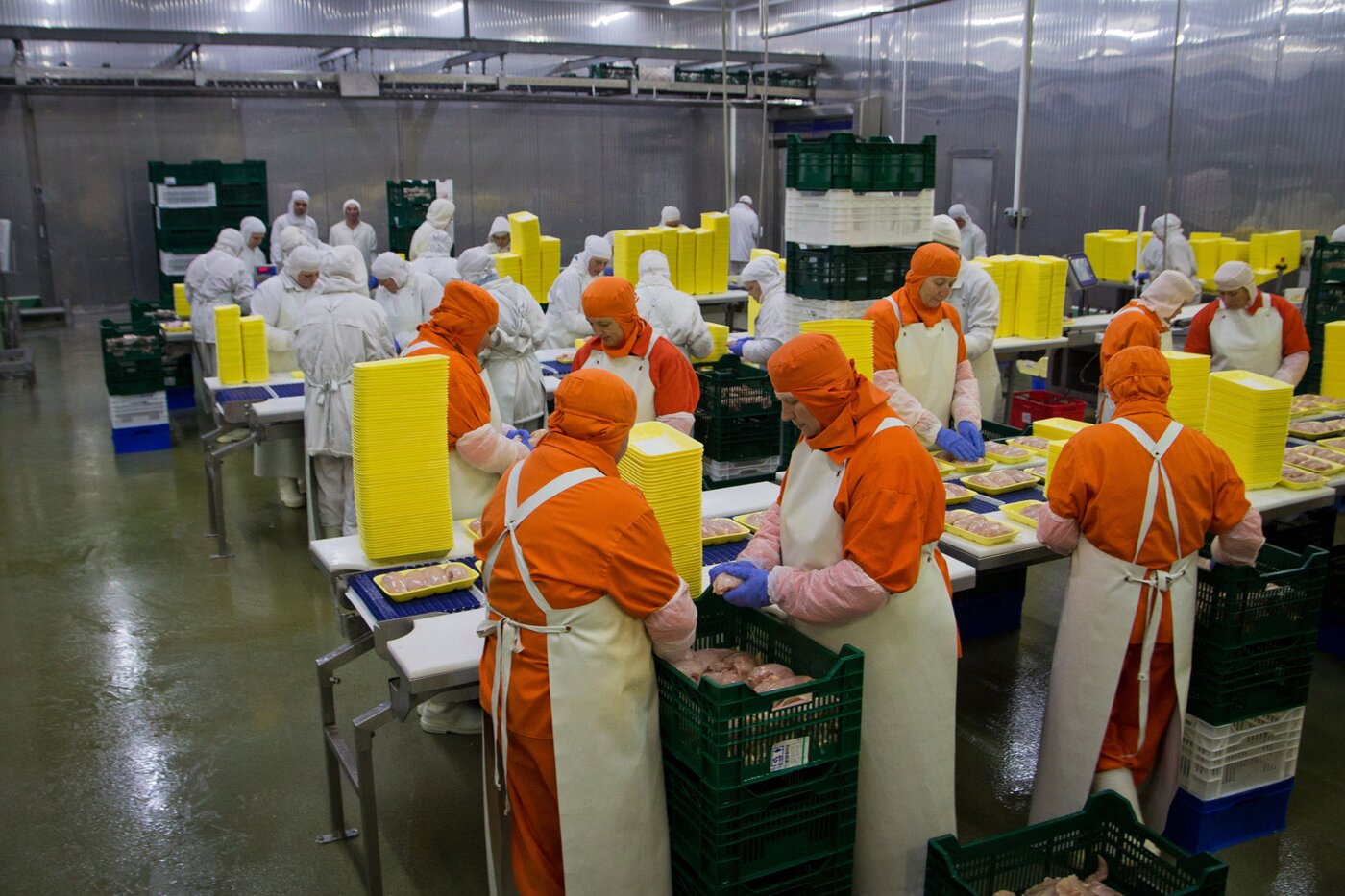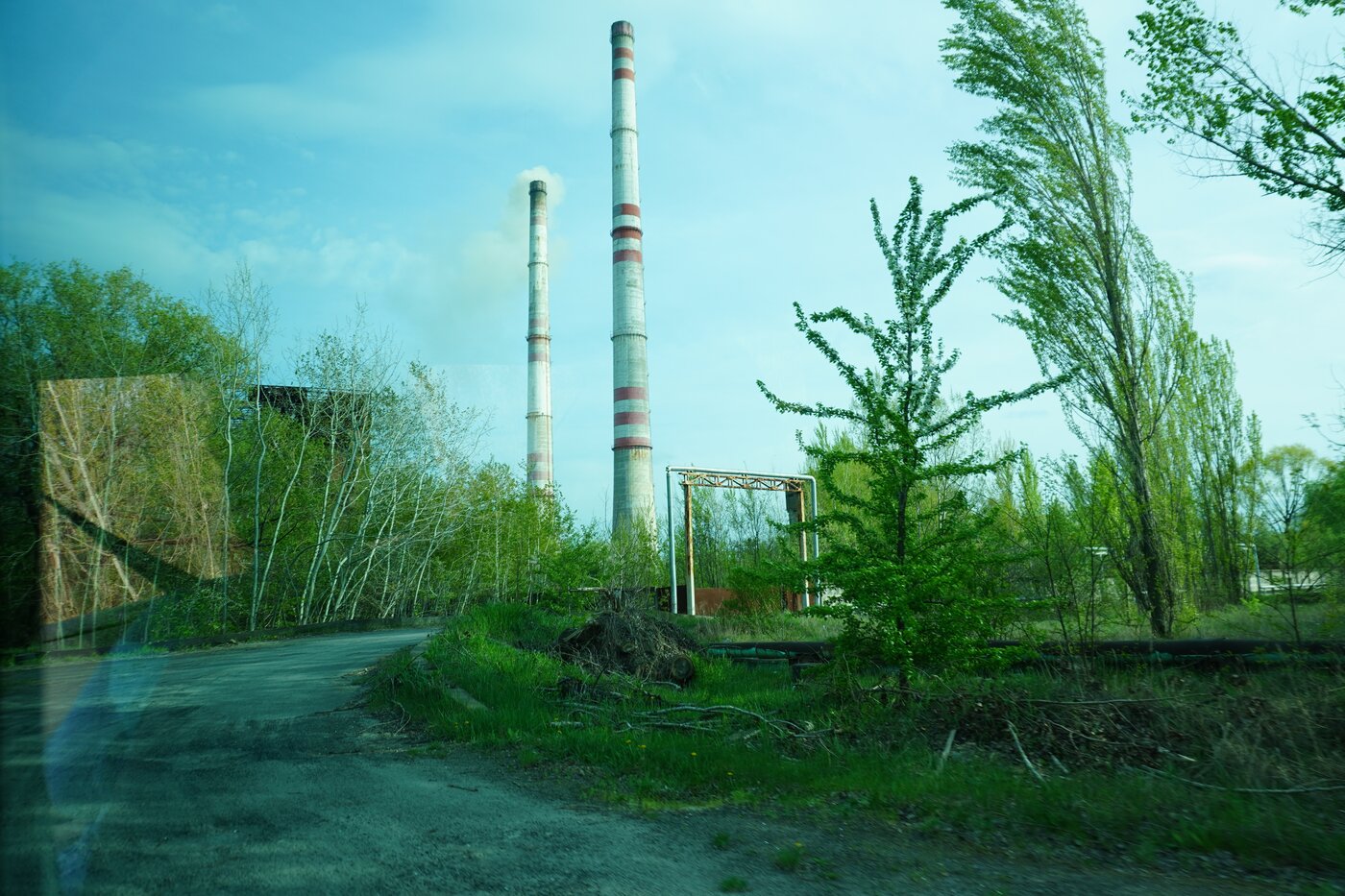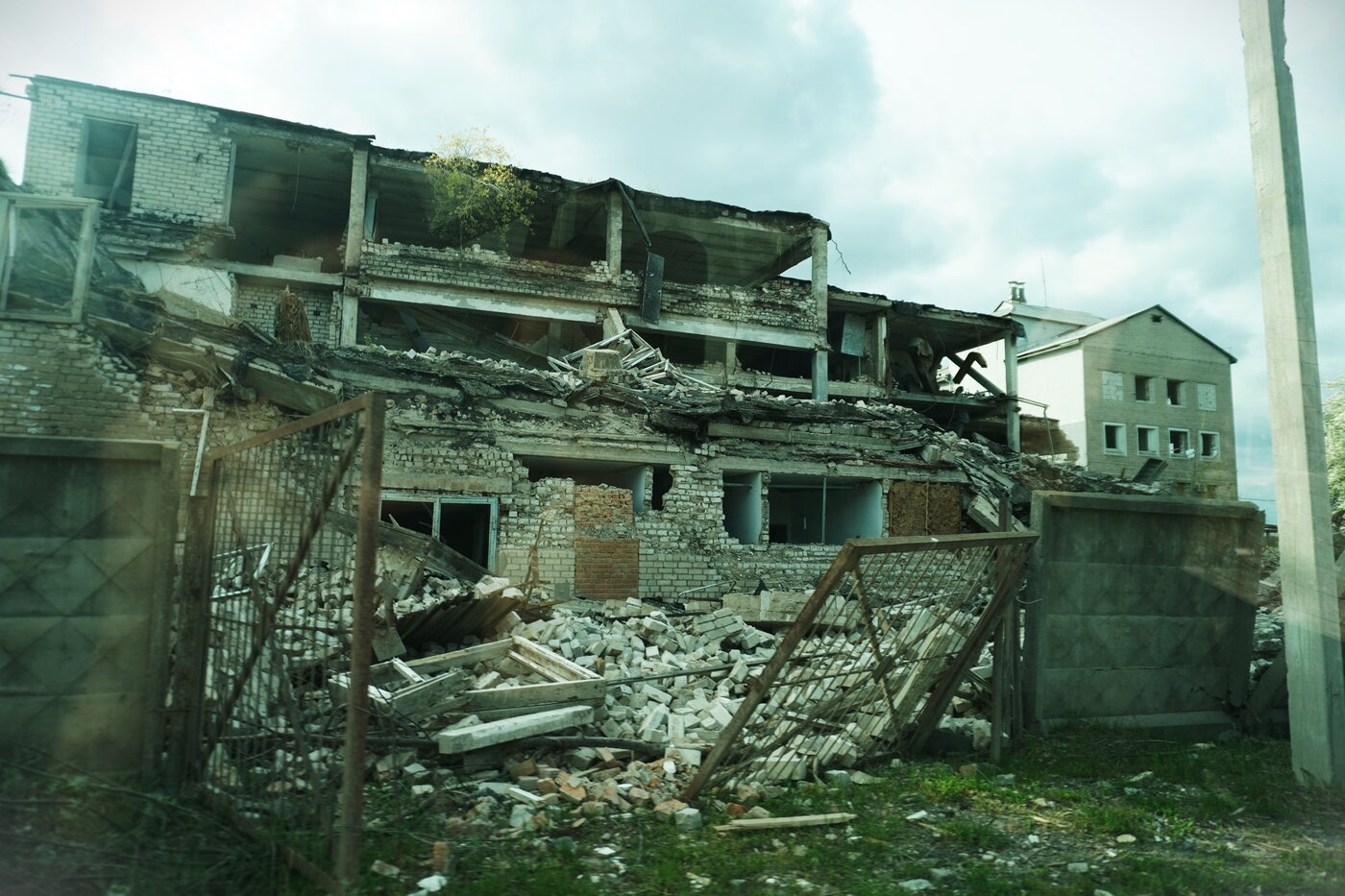How the EU is killing farmers’ livelihoods with multi-million dollar aid to a Ukrainian chicken king – Follow the Money
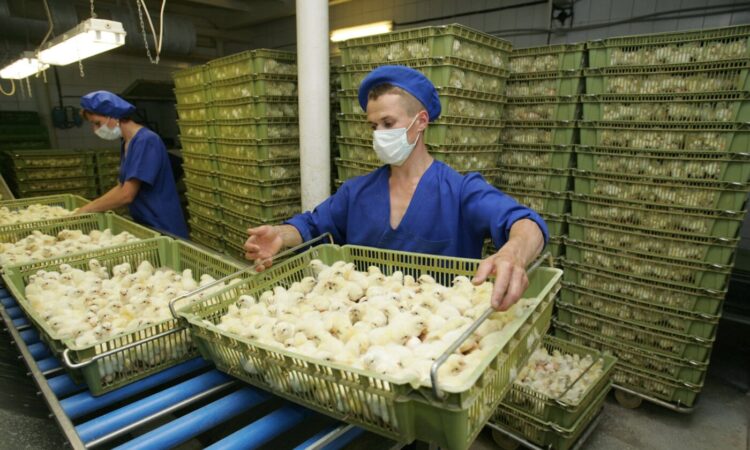
Ukrainian poultry giant MHP has benefited greatly from EU financial support to dominate the market as chicken farmers across Europe have suffered and launched protests. Campaigners and residents near MHP’s flagship farm in central Ukraine say the company is hurting the environment and their quality of life, but continues to secure major loans without any oversight of such impacts.
THIS ARTICLE IN 1 MINUTE
- EU policy favours a handful of very large Ukrainian agribusinesses at the expense of hundreds of thousands of small-scale farmers.
- For example, large loans from the EU have allowed Ukrainian chicken company MHP to grow into Europe’s biggest poultry producer.
- Traditional farmers in central Ukraine say they have been forced to lease or sell their plots of land to MHP. Local residents are inconvenienced by the group’s industrial operations: pollution of land, air and water threatens their way of life.
- Chicken farmers across the EU are also suffering from MHP’s market dominance. They argue that the Ukrainian company is less strictly monitored for compliance with EU rules on social and environmental protections.
- Some campaigners fear that current EU policy focuses too much on large-scale and unsustainable agriculture, ultimately turning it into a barrier to EU accession for Ukraine.
In the rolling hills of Ukraine’s central Vinnytsia region, a five-hour drive south of Kyiv, lies a poultry farm of almost unfathomable size.
Owned by Ukraine’s biggest chicken company MHP – formerly known as Myronivsky Hliboproduct – the Vinnytsia Poultry Farm consists of several heavily guarded, barbed-wire fenced breeding farms with dozens of white-painted barracks.
Those barracks are all filled with broiler chickens. More than eight million are slaughtered per week, according to the poultry giant.
Between the breeding barns, vast patches of sunflowers, corn and maize grow tall. MHP leases a total of 351,600 hectares of land − an area about one-and-a-half times the size of Luxembourg − from local farmers to grow chicken feed. Trucks carrying building materials, feed and chickens drive up and down the narrow county roads seven days a week, much to the frustration of local residents and farmers who say MHP’s operations are hurting the environment and damaging their homes.
The company has grown tremendously since its establishment in the area in 2010. And after Russia’s invasion of Ukraine in 2022, industry data shows that MHP grew to become the largest poultry producer in Europe – thanks in part to exports to the EU.
MHP’s revenues hit 3 billion dollars last year, up 14 per cent on 2022, while founder and owner Yuriy Kosiuk’s fortune is estimated to be at least 1.1 billion euros.
However, MHP’s vast expansion would not have been possible without support from the European Bank for Reconstruction and Development (EBRD).
Since 2014, the development bank − of which the EU and all 27 member states are shareholders − has financed Ukraine’s agricultural sector with loans worth hundreds of millions of euros. Most of these funds have gone to mega-corporations such as MHP, fuelling fury and protests by farmers in European nations from France and Germany to Poland.
Ukrainian chicken meat for a song
After the EU and Ukraine signed the Association Agreement in 2014, many of the import duties on agricultural products were removed. For example, Ukraine has since been allowed to export up to 20,000 tons of chicken fillet annually to the EU duty-free.
Because the restriction did not apply to meat on the bone, MHP opened a branch in the Netherlands’ central Veenendaal region to process chicken carcasses into fillets and resell them from the country.
Chicken farmers in the EU reacted furiously. That prompted, in 2019, Brussels to raise the total export quota for Ukrainian poultry products by 50,000 tons as a way to regulate MHP’s exports.
After the Russian invasion of Ukraine, the European Commission decided to support the country’s economy by temporarily removing import duties on agricultural products. Protests by European farmers led to an April 2024 cap on “sensitive agricultural products” such as chicken meat, eggs, sugar, corn and honey. Of these, Ukraine may not export more than the average recorded between the end of 2021 and the end of 2023. If that limit is exceeded, import duties will automatically apply again.
Villagers and farmers fearful of retaliation
MHP’s local headquarters in Vinnytsia overlooks the region from a hilltop.
To operate as cheaply as possible, the poultry giant has integrated its entire production chain. MHP operates its own supermarket chain and bus company, and has a campus for migrant workers. It slaughters and processes all of its own meat and disposes of the leftovers in a large crematorium.
Residents of the villages Zaozerne and Kleban – located near the Southern Buh river – have complained for years about unpleasant smells, dangerous traffic, and damage to their homes from the never-ending convoy of trucks. They worry about the use of chemical pesticides close to their homes, and groundwater becoming contaminated.
“We are completely surrounded,” farmer Lyubov Shevchuk told Follow the Money in April as three buses carrying MHP workers sped past her vegetable garden.
Shevchuk – who sells her produce at local markets – lives in the middle of MHP’s production zone, and bemoaned the “huge amount of farmland they have taken up”.
“I would expect that such a company could only get European money if it adhered to strict social and environmental conditions,” she said. “But I don’t believe anybody takes notice of that.”
After nearly 15 years of futile resistance to MHP’s business expansion, ranging from local protests to a legal complaint, Shevchuk is tired of the situation.
“Most people now lease their land to the company to still make some money,” she said. “It is actually a forced choice because there is no other work, and MHP does not tolerate competition.”
A few kilometres away, Natalia Mala’s house sits next to a large piece of arable land on which MHP grows animal feed. She is a teacher and also grows fruit in her garden, which she sells at the local market.
Mala said that spray planes had distributed pesticides without any notable buffer zone for years. “Due to martial law, they are no longer allowed to fly. But before that, MHP would fly past right next to my house.”
In 2018, residents of three villages in Vinnytsia approached EBRD’s complaints department: they were angry that local officials did not take their concerns seriously. But those proceedings ended in 2021 after three years of arduous mediation talks.
The official complaint report described issues such as damage to homes from constant traffic, fears of water, air and soil contamination, and depletion of the groundwater on which many villages depend. The report explicitly stated that the complainants wished to remain anonymous for “fear of retaliation”.
Mala said her husband had worked for MHP after the couple moved to Vinnytsia several years ago in search of work. However, he quit because of poor working conditions and accidents, she explained.
“We complained, which is why we are now blacklisted (by MHP),” Mala said. “For example, my current employer is being pressured. In my opinion, the KGB never left. The only difference now is that it is financed by European banks.”
Struggle for small-scale farmers
A lot of money revolves around Ukrainian agriculture. In 2021, the sector accounted for 41 per cent of the country’s exports, up from 27 per cent in 2013, EU data shows.
Going back to the 19th century, the vast country had already developed into the breadbasket of the Russian Empire and, later, the Soviet Union. Ukraine boasts 41 million hectares of extremely fertile soil: black, humus-rich chernozem.
After Ukraine’s independence in 1991, Soviet-era consolidated farms were split up and divided among small farmers. In the following years, oligarchs – shrewd and well-connected businessmen – managed to merge those plots by concluding hundreds of thousands of leases. This resulted in the conglomerates that dominate Ukrainian agriculture today.
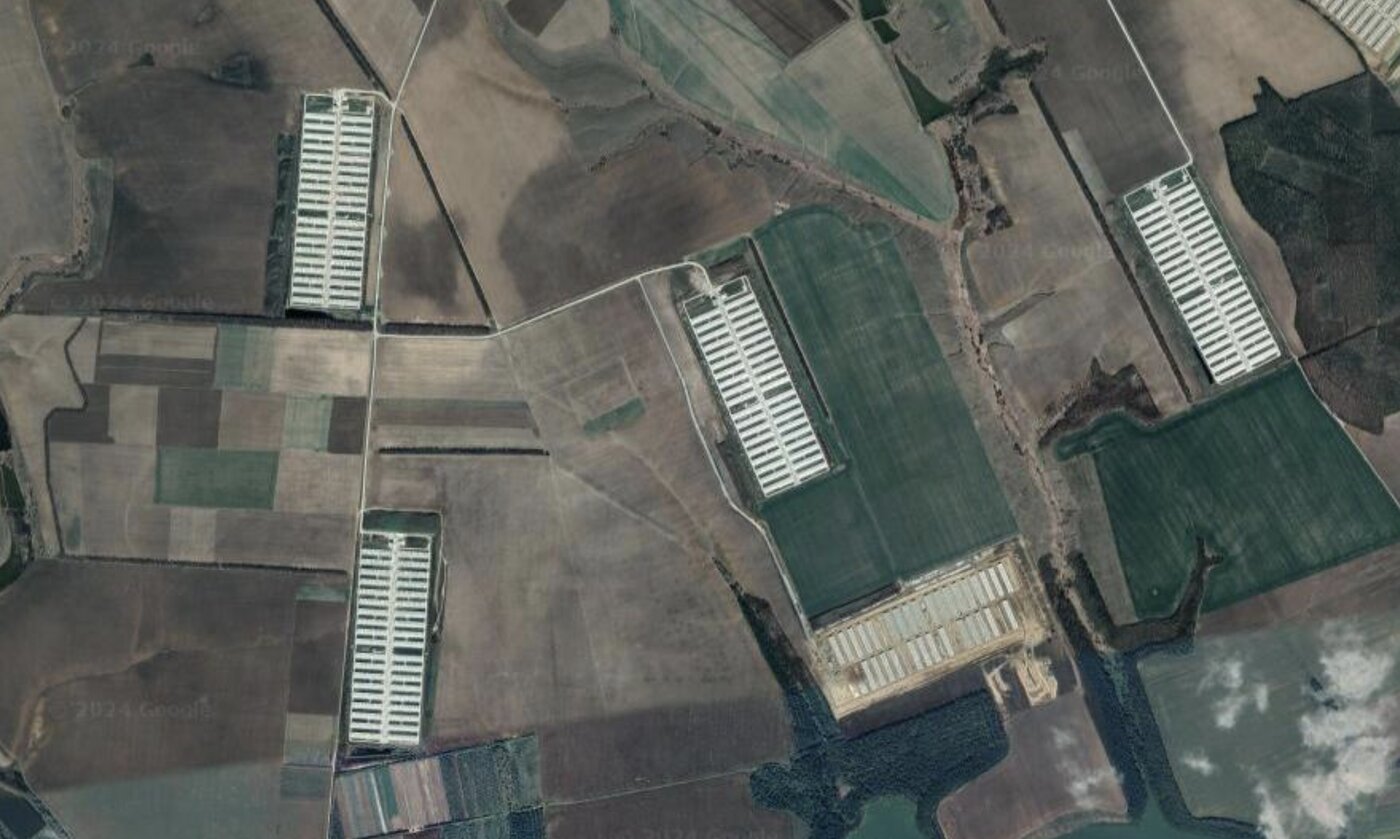
A number of MHP chicken farms seen from the air near Kleban, Ukraine.
According to statistics from the European Commission, a quarter of farmland in Ukraine is owned by just 70 mega-corporations. The parent companies of the biggest such agribusinesses are based in tax havens: grain company Kernel (507,611 hectares as of 2020) in Luxembourg; Ukrlandfarming (531,306 hectares), American investment firm NCH Capital (350,400 hectares) and MHP (349,321 hectares) in Cyprus.
Ukraine liberalised its land market as of 1 January this year after years of pressure from the International Monetary Fund and the EU.
Now there is an even bigger risk of land consolidation. Companies that previously could only lease land can now buy it – with financial support from Brussels. On the other hand, many small-scale farmers have had to abandon their farms to fight in the war.
There are also an estimated 900,000 small-scale farmers across the country. These earn their living by selling grain, potatoes, fruit and dairy products at local markets and to middlemen. According to a 2020 report by the Commission, they generate the most jobs in rural areas and are crucial to domestic food security.
However, the sector has been neglected and underfunded by the state and the level of development in rural areas is “extremely low” − with nearly a quarter of rural households living below the subsistence level, the report found.
Megabucks for mega-corporations
Meanwhile, the major players in Ukrainian agriculture consistently benefit from multi-million dollar support from Europe.
For example, between 2018 and 2021 Kernel received a total of 288 million dollars in loans from the EBRD and 250 million euros from the European Investment Bank (EIB) in 2018 to increase its grain storage capacity.
NCH Capital also appears on EBRD’s books for 50 million dollars, and global crop giant Louis Dreyfus for 175 million dollars.
MHP first borrowed 65 million dollars from the EBRD in 2010, followed by 100 million dollars in 2013 to purchase land and equipment, then 85 million dollars in 2015.
In 2017, EBRD lent the poultry giant 25 million euros from its climate fund to build a biogas plant to get rid of large amounts of chicken manure.
On top of that, MHP has borrowed substantially from Dutch multinational Rabobank (more than 26 million dollars) and the EIB (85 million dollars).
Caught between conflict and corporations
Russia’s invasion of Ukraine allowed MHP to position itself as patriotic. For example, the company provides free chicken meat to the military and is a significant source of employment during an economically challenging time: the company’s data shows that as of the end of 2023, it had a total of 28,788 employees.
But the war is noticeable everywhere − even in the countryside of Vinnytsia, hundreds of kilometres from the front lines. In most villages, statues of former Soviet heroes have been pulled down, military recruitment posters appear on trains, and every cemetery contains tombstones of villagers who have died as a result of this conflict.
In mid-April, two weeks before Follow the Money visited the region, Russian drones shot the regional power plant to pieces, local residents explained. Officially, no one is allowed near it − but when Google Maps accidentally led FTM reporters down a deserted dirt road, the damage to the facility was clearly visible. The plant had partially burned down, while buildings surrounding the plant itself were completely destroyed.
People in Vinnytsia also feel trapped between the Russian army’s aggression and Ukraine’s agricultural superpowers.
On a farm in Kleban, one woman − who asked to remain anonymous − explained that she and her husband grow grain on a 5-hectare patch of land and sell it to a local middleman.
“We want to expand our little farm. However, this is not possible because MHP owns all the land around our village,” she said. “As a result, many people depend on MHP for their income, so it becomes more and more difficult to criticise a company that is everywhere.”
© Latifundist / MHP
© Latifundist / MHP
© Latifundist / MHP
Local farmers have no use for conglomerates like MHP, said Roman Makukhin, an organic fruit grower and sheep farmer in northern Ukraine. “Many jobs consist of office work or are performed by technicians. In Vinnytsia, farmers lose their land to a company that then no longer needs them.”
Since Makukhin’s village in the north was overrun by Russian troops, he has also been working in an office in Kyiv on a Dutch-funded study of Ukraine’s accession to the EU.
Follow the Money reporters met Makukhin in a packed restaurant on the south side of Kyiv’s central station. Just minutes earlier, an air raid alarm went off, pushing everyone to seek shelter. Despite the initial fright, life quickly resumed as normal.
In its support for Ukrainian agriculture, the EU argues that Ukrainian grain is necessary to prevent global hunger – but that’s too simplistic of a view, Makukhin said.
Makukhin was angry about what he considers to be disproportionate EU aid that allows oligarchs to tighten their grip on the economy: “The myth that Ukraine feeds the world makes a small group extremely wealthy while whole villages are destroyed. Producing chicken on an industrial scale has nothing to do with food security, and most Ukrainian corn ends up being used as cattle feed in Spain.”
Makukhin continued: “People in Brussels should be more aware of the fact that small Ukrainian farms are the ones producing most of the food and that they receive almost no support.”
Nevertheless, in 2022 and 2023, MHP again received three large loans from EBRD: 24 million euros to sow crops, 90 million dollars to purchase seeds and 100 million dollars to refinance debts.
However, according to Nazar Bobitski, director of the EU office of the Ukrainian Agribusiness Club (UCAB), there is nothing wrong with such funding.
Busstop with the MHP logo
© Michaela Kožmínová
Patches of agricultural land from MHP
© Hans Wetzels
MHP’s chicken farms
© Michaela Kožmínová
The chimneys of the bombed power station can be seen from Oksana Bazyliuk’s yard
© Hans Wetzels
“It’s a smear campaign against the largest Ukrainian farms,” he said in his office in Brussels, located right across from the Commission headquarters. His association lobbies for agribusiness interests.
“Actually, it’s quite logical that when there is so much land available, you start working on an increasingly larger scale. Locally, there will always be friction between small and big players,” said Bobitski.
“It is up to the Ukrainian government to guarantee a level playing field. People who dismiss our members as oligarchs fail to appreciate the unique large-scale nature of Ukrainian agriculture.”
Concerns over multi-billion package for Ukraine
In recent months, the Commission has been working on an entirely new support package for Ukraine’s economy.
The so-called “Ukraine Facility” has 50 billion euros in its coffers, intended, among other things, to keep the government afloat, pay civil servants’ salaries, support the healthcare sector and plug holes in the national budget. Of that amount, 7 billion euros are earmarked for investment in the private sector.
As the Commission itself cannot provide loans, this money will soon be distributed by institutions including the EIB and the EBRD.
But not everybody is comfortable with that, said Valeriya Izhyk of CEE Bankwatch Network, an Eastern European alliance of environmental organisations.
“The EBRD-funded projects we have been following are cause for concern. I fear that we are simply repeating those mistakes with this new financial push. There is a danger that Ukraine will be rebuilt in a way that does not match the priorities that prevail in society,” she said in her office in Brussels, where she represents Ukrainian civil society.
Leafing through a stack of papers − EU regulations on aid to Ukraine − Izhyk said it seemed as if the Commission had largely ignored input from environmental organisations.
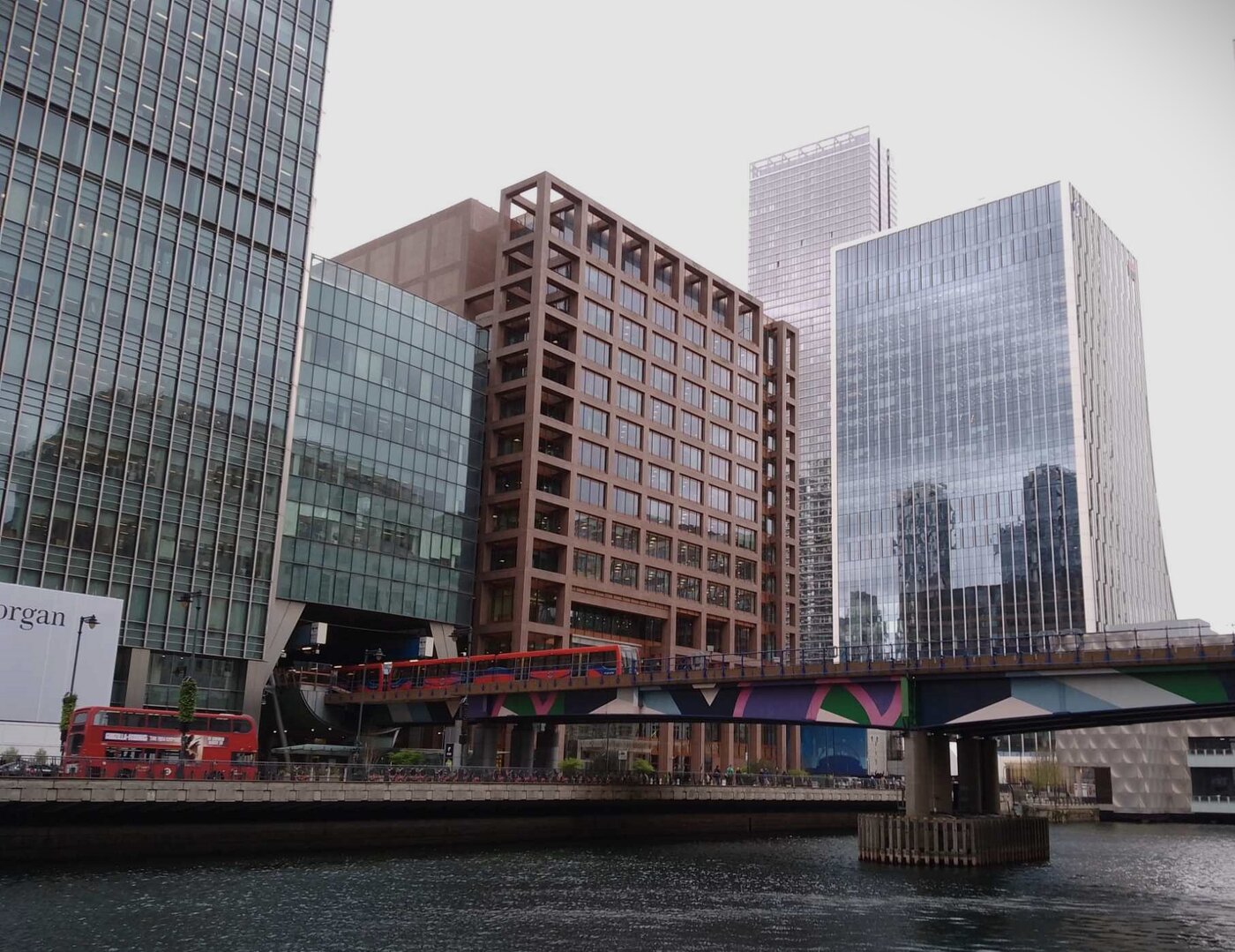
EBRD headquarters on the right
© Hans Wetzels
“I notice very weak social and environmental conditions,” she explained. “Although it neatly states that no money may go to projects that are not compatible with international climate agreements or the (European) Green Deal, none of it is very binding. It seems as if the Commission is afraid of asking too much of a country at war.”
Last month, the Commission announced how the first 1.4 billion euros from the Ukraine Facility will be distributed. A substantial portion is earmarked for repairing energy infrastructure badly damaged by Russia.
Small and medium-sized enterprises (SMEs) will receive support to the tune of several hundred million euros − mostly through guarantees and grants aimed at enticing the private sector to invest. Yet Bankwatch said the support for SMEs is a drop in the ocean compared to the sums that have been loaned to conglomerates such as MHP for years.
Izhyk said it was unclear how the EBRD tests whether large companies’ project proposals meet environmental and social requirements. “I asked questions about this but got different answers from different departments” she added.
In response to questions from Follow the Money, the EBRD did not provide any clarification on the issue. A spokesperson emphasised that the bank discusses every project with the Commission.
Tough times for locals, boom times for MHP?
Between the golden domes of the many Orthodox churches shining in the sun in Vinnytsia, life more or less continues as usual despite the war. Residents have grown accustomed to regular air raid sirens and mourning those who died on the battlefield.
MHP also appears to have adapted to the new reality. In its company data, MHP reports that it has re-sown 95 per cent of its arable land, and that exports rose by 21 per cent in the first nine months of 2023 compared with the whole of 2022.
But environmental groups have highlighted its ecological impacts. The Ukrainian branch of Bankwatch said it had found alarmingly high concentrations of harmful substances in every water measurement in Vinnytsia. Its latest tests in October 2023 and this April showed water sources contaminated with nitrate, and rivers contaminated with ammonia. Yet villagers said they keep quiet for fear of being harassed.
On behalf of MHP, lobby organisation UCAB said such criticism was “inaccurate and therefore misleading”, and stressed that its members always adhere to the social and environmental conditions set by the EBRD for receiving loans.
In the meantime, the EBRD maintains its support for MHP.
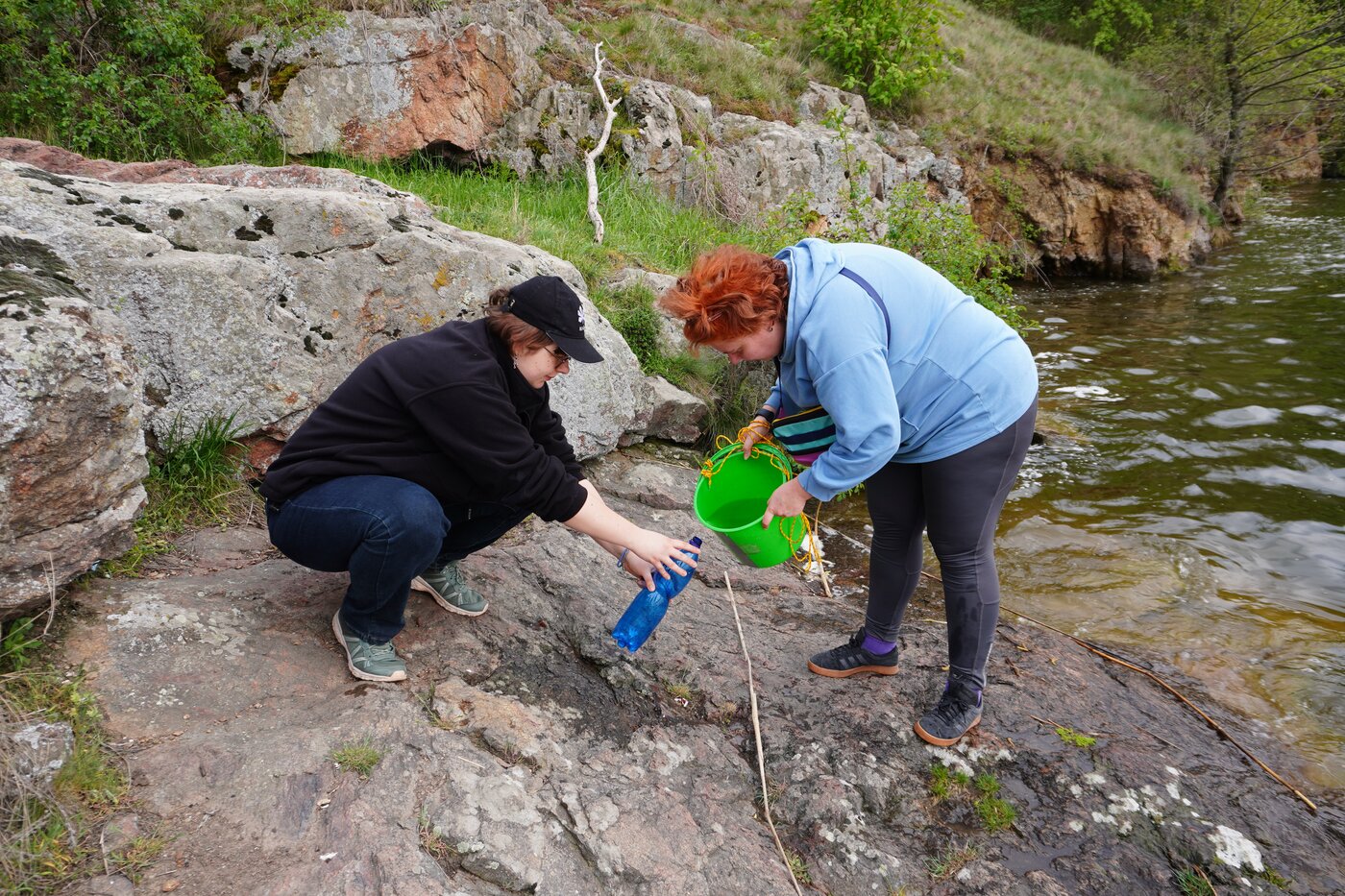
Researchers from the Ukrainian NGO Ecoaction are taking water measurements in Vinnytsia
© Hans Wetzels
A spokesperson for the bank said over email that its “continued involvement” is justified because MHP plays a central role in “food security during the war”.
In the view of Izhyk of Bankwatch, this is a naive assessment that could cost Ukraine dearly.
“I fear that Ukraine will soon be saddled with all kinds of projects that do not comply with European rules,” she said. “This will instead reduce our chances of joining the EU.”

